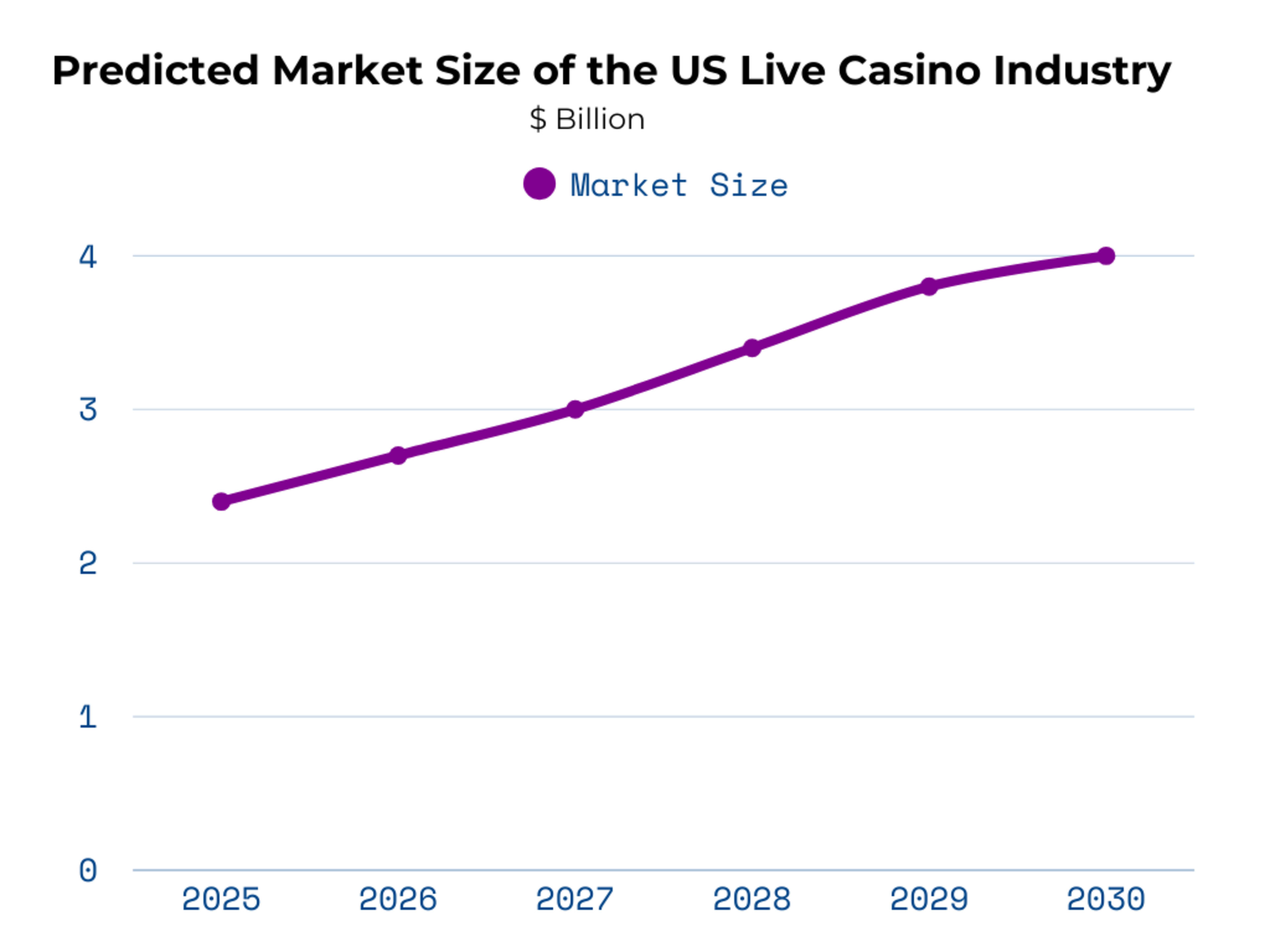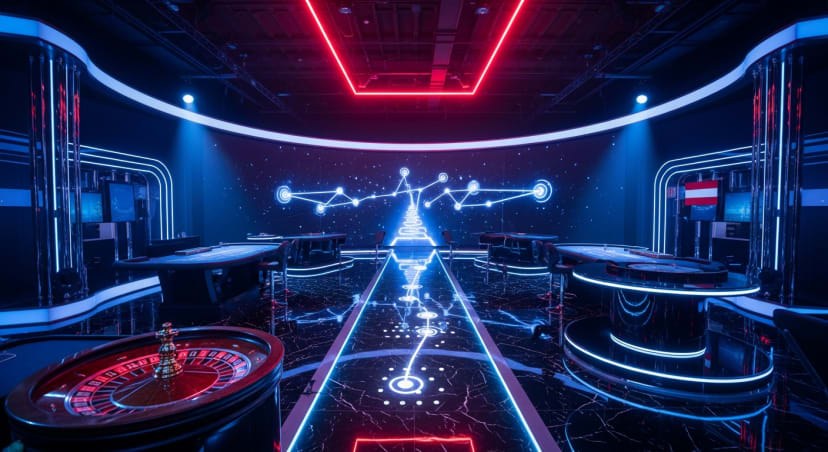Thinking about hitting up a Kiwi online casino? While the familiar buzz of actual casino floors might be a distant memory for some, the digital world is where the action's at, with slick screens and automated thrills taking centre stage. Electronic Table Games (ETGs) are surging, and while the global market might be booming, here in Aotearoa, players are increasingly exploring these digital alternatives too. This shift isn't just a tech fad; it's reshaping how we engage with casino games, and the industry is evolving rapidly. In this piece, we'll dive into why ETGs are gaining traction, looking at fresh insights and expert opinions. Whether you're a seasoned player, new to the scene, or just curious, get ready for a glimpse into the future of casino gaming in New Zealand.
Why Are ETGs Gaining Ground in New Zealand?
The move from traditional casino setups to ETGs is picking up pace. While the original article discusses the US market's shift driven by specific economic factors and regulations, here in New Zealand, the appeal lies in convenience, accessibility, and a broader range of games available 24/7. Players are seeking ways to enjoy their favourite table games anytime, anywhere.
Convenience and Accessibility: Play Your Way, Anytime
For players in New Zealand, the biggest draw of ETGs is undoubtedly the sheer convenience. No need to travel to a physical casino; you can jump into a game of blackjack or roulette from your couch in your PJs. This accessibility means you can play your favouritepopular live table games whenever the mood strikes, whether it's a quick session during your lunch break or a longer, more relaxed evening. Plus, with the rise of mobile gaming, many ETGs are optimised for smartphones and tablets, making them perfect for on-the-go entertainment. The 2025 landscape shows a continued demand for flexibility, and ETGs deliver exactly that.

Exploring ETGs in New Zealand: What to Expect
While the original article highlights specific US casino transformations, the trend towards digital gaming is global. Here in New Zealand, players can find a variety of online casinos offering ETGs that replicate the feel of traditional table games. The experiences may vary slightly from offshore casinos, but the core appeal remains the same: accessible and engaging gameplay.
Imagine playing blackjack or roulette on a sleek digital interface, placing your bets with a few taps. This is the reality for many Kiwis enjoying online casino games. Unlike the fixed schedules and physical locations of land-based casinos, ETGs offer unparalleled freedom. Many platforms accessible to New Zealand players provide these games, allowing for more players at any given time without the usual wait times for a seat at a live dealer table. This means less downtime and more game time, which is a win for any player.
The innovation in ETGs means you can often find a wider range of betting options and game variations than you might at a single physical venue. Whether you're a low-stakes player looking for a casual flutter or a high roller seeking bigger thrills, ETGs can cater to different preferences. The continuous development in this space means new features and more immersive experiences are always on the horizon for New Zealand online casino enthusiasts.
The future of casino gaming in New Zealand is certainly leaning towards digital convenience and player choice. ETGs represent a significant part of this evolution, offering a blend of technology and classic casino fun. As the online casino landscape continues to grow, expect these electronic table games to become an even more prominent feature for players across Aotearoa.
Cost Breakdown: ETGs vs. Live Dealers – The Numbers Don't Lie
Money talks in high roller live casinos, and ETGs scream savings. Traditional live dealers rack up high labor costs—think $150-$200 per hour in wages alone—while ETGs slash overheads by up to 50% through minimal staffing and faster game speeds. Here's a head-to-head comparison:
Player Preferences: Who Loves ETGs and Why?
The demographics around ETGs reveal a clear generational divide.
- Younger Players (18–34 years): This age group represents the overwhelming bulk of ETG adoption, accounting for over 95% of electronic gamers in 2025. For Gen Z and younger Millennials, ETGs align perfectly with their digital-native lifestyles. They value the privacy of terminals, the ability to learn without public embarrassment, and the low-stakes bets ($5–10) that make experimentation more affordable. These players are also accustomed to mobile gaming and online interfaces, so transitioning into ETGs feels natural.
- Millennials (30s–40s): While slightly older, Millennials dominate the online gambling sector and show a strong preference for ETG blackjack and baccarat, particularly for solo play sessions. Their busy lifestyles make quick, on-demand gaming appealing, and ETGs meet this need without the social expectations of live dealer tables.
- Older Players (45+ years): This group continues to gravitate toward live dealers. For them, the allure is not speed or efficiency but the social atmosphere—dealer banter, camaraderie with tablemates, and the traditional casino experience. However, some older players have begun exploring ETGs for their accessibility and reduced intimidation factor, particularly when learning new live casino games.
Culturally, ETGs are transforming the casino environment. The old image of rowdy, crowded tables is being replaced by tech-driven zones, sleek electronic setups, and quieter, more individualized play. This reflects a generational shift in entertainment, where personalization and technology are now central.

Operator Insights: What Casino Bosses Are Saying About ETG Strategy
Casino executives have become vocal advocates of ETGs, often highlighting two key drivers: financial resilience and audience expansion.
- Financial Growth: Multiple top-rated live casino platforms explain that they are leveraging ETGs to drive profitability during a time when labor costs are unpredictable and staffing is challenging. By reducing dealer reliance, casinos enjoy higher margins per table and greater throughput per hour.
- AI Integration: Another casino leader emphasizes that AI and machine learning are transforming ETG operations. AI is not only used for marketing and player retention but also for responsible gambling tools—detecting risky patterns and offering real-time interventions.
- Strategic Agility: With ETGs, casinos can reconfigure floors more quickly, adapt to peak visitor times, and attract tech-savvy younger crowds without alienating traditional players. This adaptability has become a cornerstone strategy in 2025’s volatile economy.
Cutting-Edge Innovations: ETGs Get Smarter in 2025
2025 brings ETG wow-factors like AI-personalized betting in blackjack and AR overlays for immersive roulette. Hybrid systems blend live wheels with digital interfaces, while VR dealers elevate baccarat. These tech leaps bridge the authenticity gap, making ETGs feel alive without the human element.
The Employment Equation: Jobs Gained, Lost, and Transformed
ETGs disrupt jobs—potentially cutting dealer roles by 20-30%—but the industry forecasts 17% overall growth through 2031, creating tech maintenance and analytics positions. In 2025, unions push for reskilling, turning potential losses into opportunities. Economically, it's a mixed bag: fewer low-skill jobs, more high-tech ones.
Global Perspective: US vs. Macau and Europe in the ETG Race
The US is catching up fast, but Macau leads with ETGs generating 37% more profit than traditional tables, post-2019 adoption. Europe's slower, favoring live dealers culturally, though the UK ramps up for compliance. US casinos blend both, using ETGs for efficiency while preserving social hubs— a balanced overtake.









